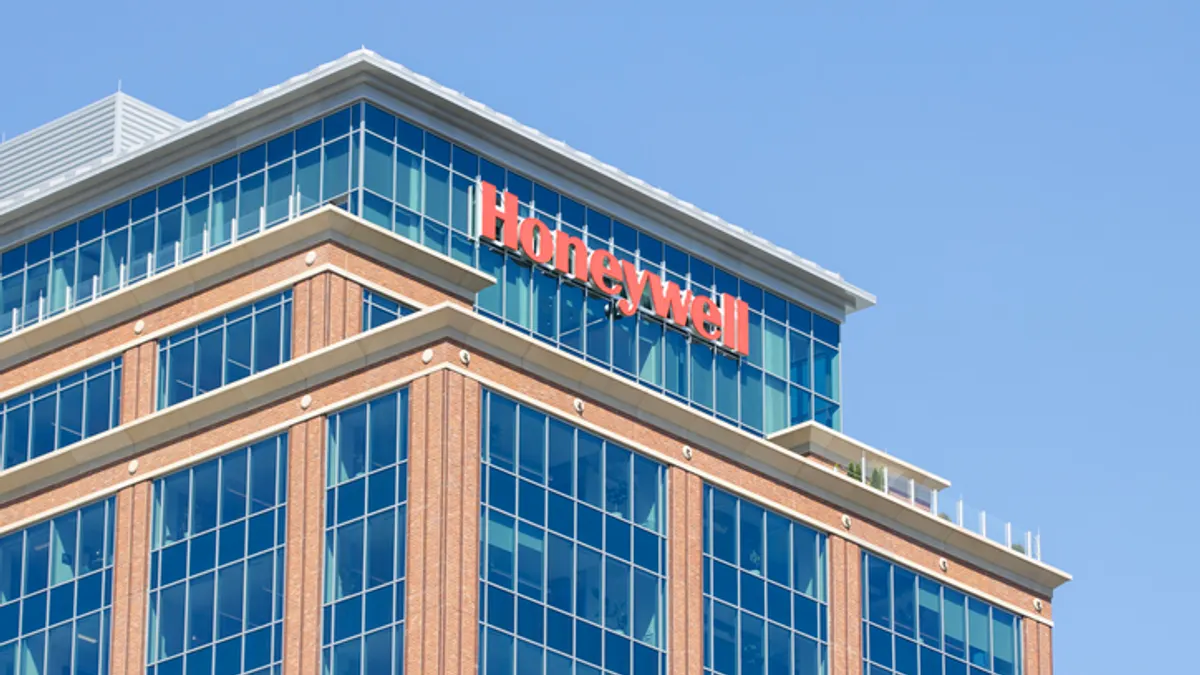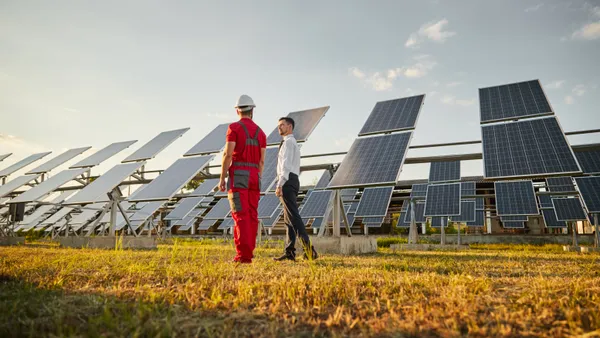Dive Brief:
- Charlotte-based technology conglomerate Honeywell, Samsung’s engineering subsidiary Samsung E&A, chemicals company Johnson Matthey and chemical engineering firm Gidara Energy have joined together to create a strategic sustainable aviation fuel technology group, Honeywell announced Thursday.
- The four companies, organized as the SAF Technology Alliance, aim to create a new technology offering to help scale and deliver a full-service SAF production chain to take the fuel from a waste feedstock to a final product.
- The new SAF-focused alliance will look to scale the use of gasification and the Fischer-Tropsch process — a chemical reaction that makes synthesis gas — in SAF production in the near term, according to the release. SAFs still made up less than 1% of global jet fuel use last year and are growing at a "disappointingly slow” rate, according to the International Air Transport Association.
Dive Insight:
Currently, each of the four companies that compose the alliance have expertise in one or more aspects of the SAF production process, but the group estimates that the combined resources and integrated solution will reduce the time between a feasibility study and facility startup by 15%, according to the June 5 release. The SAF Technology Alliance also said their modular, integrated solutions should reduce capital expenditures by 10%, based on a theoretical schedule and cost analysis conducted by the companies.
Honeywell Energy and Sustainability Solutions CEO Ken West said that the “end-to-end SAF alliance demonstrates the power of collaboration to address the world’s energy demands.” The four companies will create a non-exclusive product for clients that combines Gidara’s expertise in gasification and synthesis gas production; Johnson Matthey’s catalysts and technology to convert syngas to fuels; Honeywell’s technology and digital automation; and Samsung E&A’s expertise in global engineering, procurement, production and project execution.
“As demand for SAF increases, the technology to expand available feedstock options becomes increasingly vital,” West said in the release. “This comprehensive alliance provides refiners with a strategic approach to quickly execute their vision.”
Maurits van Tol, CEO of Johnson Matthey’s Catalyst Technologies, said the group is looking to target “the common challenges faced by SAF producers” to, ultimately, accelerate global SAF deployment.
The alliance said it will first focus on scaling the use of gasification and the Fischer-Tropsch method because it will enable the use of biomass and municipal solid waste as a feedstock, and such production methods are “increasingly important.” The International Energy Agency estimated in 2023 that waste-, residue- and nonfood energy crop-derived biofuels could meet 40% of all biofuel demand by 2030.
Samsung E&A CEO Hong Namkoong said the combined expertise of the companies will create a “resilient and scalable” SAF supply chain, and Gidara Energy CEO Norbert Kamp said the group will help unlock “the value of waste to meet the growing demand for SAF.”
The SAF Technology Alliance comes as both airlines and global shipping companies are looking to invest in and procure SAFs to drive down their emissions. Last year, United Airlines and Jet Blue inked airport-specific SAF deals, while Southwest Airlines acquired SAF producer Saffire Renewables.
Despite the investments, IATA predicts that SAFs will continue to make up less than 1% of all jet fuel consumption in 2025.











